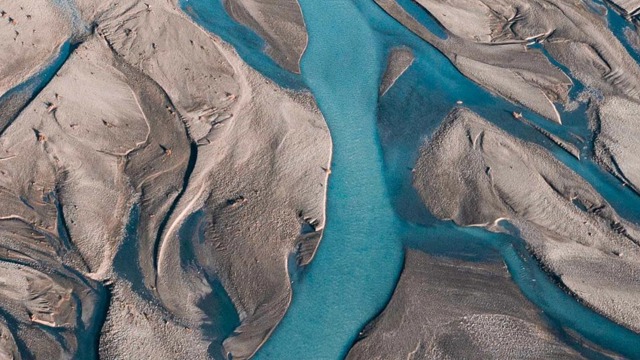The Government is now deep into its full-scale regulatory and structural reform of drinking water, wastewater, and stormwater service delivery across Aotearoa New Zealand.
The four publicly-owned water services entities (WSEs), which will take over the management of the majority of New Zealand's drinking water, wastewater, and urban stormwater assets from 67 territorial authorities, are expected to be established in the coming days. This will also trigger the start of a transitional period, during which time the WSEs will prepare to become fully operational and commence delivery of water services on 1 July 2024.
Parliament has been busy this past week progressing the three pieces of legislation that will give effect to the Three Waters Reform, with the Water Services Entities Bill (Bill 1) having its third and final reading, and the introduction of the Water Services Legislation Bill (Bill 2) and the Water Services Economic Efficiency and Consumer Protection Bill (Bill 3). The key proposals in these bills are set out below.
Water Services Entities Bill almost law
Bill 1, a standalone Bill that will establish four publicly owned WSEs to provide water services in place of local authorities, passed its third reading in Parliament this week. These entities will be established on the day after Bill 1 receives Royal assent, which will also mark the start of the establishment period. The establishment period will run until 1 July 2024 when the WSEs become fully operational, owning, and operating three waters infrastructure and services within each of the entities' geographic boundaries.
Bill 1 contains the ownership, governance, and accountability arrangements relating to the WSEs, and provides for transitional arrangements during the establishment period. The transitional arrangements include the preparation of allocation schedules, which will be the primary mechanism used to transfer assets, liabilities and other matters relating to three water services from local authorities to WSEs. There will also be obligations on existing water service providers (e.g. local authorities) during the establishment period, such as obligations to co-operate with the Department of Internal Affairs, relevant WSEs, and the New Zealand Commerce Commission (NZCC) to facilitate the water services reform.
It is expected that Bill 1 will receive Royal assent next week. You can read our previous alerts on the introduction of Bill 1 here and on the key select committee changes here. A copy of Bill 1 can also be found here.
Water Services Legislation Bill introduced
Bill 2 was introduced to Parliament yesterday. Bill 2 would amend Bill 1 to form a single Act that would establish the four WSEs and provides for their functions, powers, and duties. Bill 2 is more operational in nature and intends to ensure that the WSEs have the necessary tools to successfully provide water services when they become fully operational on 1 July 2024.
The following key proposals are included in Bill 2:
- Detailed functions and powers of the WSEs that are necessary to deliver drinking water, wastewater, and stormwater services to communities in place of local authorities.
- Provides the WSEs with the statutory authority to charge for their services in line with new legislative pricing principles.
- Provisions that intend to protect vulnerable consumers, such as the WSEs' ability to use geographic average pricing to smooth and share costs across communities.
- Obligations on the WSEs to engage with stakeholders, such as territorial authorities and consumers, when exercising their functions and powers.
- A compliance and enforcement regime, which would create various offences and give the WSEs their own enforcement powers in relation to the water supply, wastewater, and stormwater networks.
- Updating Bill 1's provisions in relation to allocation schedules, including a provision that would transfer the specific assets, liabilities and other matters of a local government organisation identified in an allocation schedule to the relevant WSE on 1 July 2024. Bill 2 also contains a general transfer provision giving effect to the legal transfer of any assets, liabilities, and other matters that meet the criteria for transfer but are not included in an allocation schedule.
A copy of Bill 2 can be found here.
Water Services Economic Efficiency and Consumer Protection Bill introduced
Bill 3 was also introduced to Parliament yesterday and is the final piece of legislation giving effect to the Three Waters Reform. Bill 3 intends to provide for the regulation of both price and quality of water infrastructure services, and for consumer protection. According to the NZCC and the Ministry of Business, Innovation and Employment, specific economic regulation and consumer protection regimes are important since the new WSEs will be large natural monopolies delivering essential water services.
The following key proposals are included in Bill 3:
- The NZCC would become the economic regulator of water infrastructure services, providing for the appointment of a Water Services Commissioner on the NZCC's board to carry out specified functions. These functions would include monitoring the quality of services provided by the WSEs, assessing whether the market is producing sufficiently competitive outcomes, and carrying out any other duties as required under Bill 3.
- Information disclosure, quality, and price-quality regulation would be implemented in phases over time. The NZCC would be required to determine initial input methodologies relating to information disclosure and price-quality regulation of water infrastructure services by 1 July 2026.
- Consumer protection provisions, including a service quality code, a consumer complaints process, and a consumer dispute resolution scheme. These provisions would come into force on 1 July 2024.
A copy of Bill 3 can be found here.
Next steps
As above, the WSEs will be established the day after Bill 1 receives Royal assent (which will likely occur next week). Bills 2 and 3 are expected to have their first reading in Parliament next Tuesday. The select committee process will provide an opportunity for the public to provide feedback on both bills. We will likely know in the coming weeks when submissions are due.
In the meantime, if you have any questions, please get in touch with one of our experts below.



